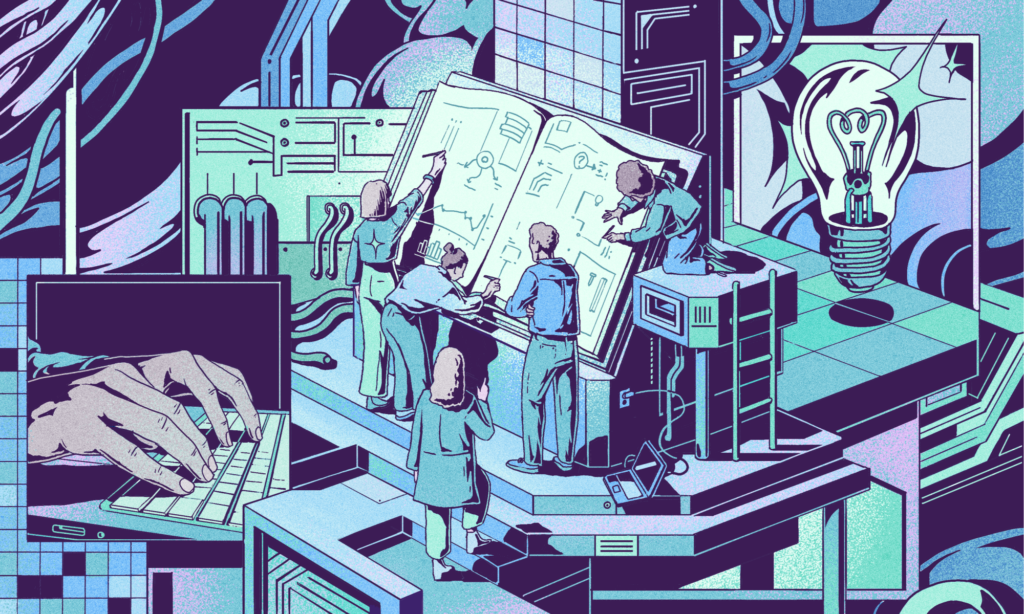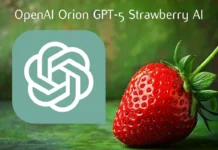Table of Contents
Artificial Intelligence (AI) is making a profound impact on open source projects, fundamentally reshaping the landscape of software development. The integration of AI in open source software engineering is revolutionizing various aspects of how code is written, reviewed, and maintained. With AI tools and technologies increasingly becoming a cornerstone of open source initiatives, this transformation is driving significant improvements in productivity, code quality, and collaboration.
In this article, we delve into how AI in open source is enhancing development processes, from automated code generation to advanced bug detection. We will highlight the numerous benefits AI brings to open source projects, explore the challenges and ethical considerations that come with its adoption, and discuss the future implications of AI’s role in this dynamic field. Understanding the impact of AI in open source is crucial for developers, contributors, and project managers aiming to leverage these advancements to foster innovation and efficiency in software development.
1. Improving Code Quality and Efficiency
AI in Open Source is transforming coding by boosting code quality and efficiency. AI tools streamline development, making coding faster and more accurate. Automated code generation quickly produces snippets from contextual inputs, cutting down routine tasks. AI algorithms excel in detailed code reviews and bug detection, learning from patterns to enhance accuracy. This integration speeds up development while maintaining a robust and reliable codebase.
Automated Code Generation
AI in open source has significantly advanced automated code generation, with tools like GitHub Copilot leading the way. These AI-powered tools analyze comments and context within the codebase to generate relevant code snippets automatically. This not only accelerates the coding process but also enhances efficiency by handling routine and repetitive tasks. By offloading the generation of boilerplate code to AI, developers can dedicate more time to solving complex problems and focusing on innovative aspects of their projects.
Furthermore, the integration of AI in open source tools like Copilot ensures that the code generated is contextually appropriate, reducing errors and inconsistencies. This intelligent automation streamlines the development workflow, boosts productivity, and contributes to higher-quality software, as developers spend less time on mundane coding tasks and more on creative problem-solving and feature development.
Code Review and Bug Detection
AI in Open Source is significantly enhancing the code review and bug detection processes. AI algorithms, powered by machine learning, have the capability to analyze code with remarkable precision, identifying bugs and suggesting improvements with unprecedented accuracy. Tools like DeepCode and CodeGuru exemplify this trend by employing sophisticated AI models to understand and interpret coding patterns. These AI-driven platforms scan through vast codebases, uncovering issues that might be missed during traditional reviews. By automating these tasks, AI not only boosts code quality but also minimizes the number of bugs that reach production. This integration of AI in open source projects ensures a more robust, error-free code, fostering greater reliability and efficiency in software development.
Documentation and Code Commenting
Maintaining comprehensive and up-to-date documentation is essential for the success of open source projects. AI in Open Source plays a pivotal role in this by automating the generation and updating of documentation. AI tools can analyze the entire codebase, identify key components and functions, and generate relevant comments that enhance the clarity and usability of the documentation. This automation ensures that documentation remains current with the latest code changes, which is particularly valuable for large and active projects.
Moreover, AI-driven documentation tools simplify the onboarding process for new contributors. By providing clear and contextual comments, AI helps newcomers quickly understand the project’s structure and functionality. This not only accelerates the learning curve but also encourages more effective collaboration and contributions, ultimately supporting the overall growth and sustainability of open source projects.
2. Streamlining Collaboration and Contribution
Open source projects thrive on collaboration, and AI in Open Source is significantly enhancing this dynamic. By automating routine tasks and facilitating communication, AI tools are making it easier for developers to collaborate and contribute effectively. AI-driven platforms streamline the process of merging code changes, resolving conflicts, and ensuring that contributions are integrated smoothly. These tools help manage contributions from multiple developers, reducing manual effort and potential errors.
Furthermore, AI in Open Source is also transforming how new contributors are onboarded. Intelligent recommendation systems guide new developers towards beginner-friendly issues based on their skills and interests, making it simpler for them to get involved. This targeted approach not only encourages more participation but also accelerates the learning curve for newcomers, fostering a more inclusive and efficient collaborative environment.
Automated Merging and Conflict Resolution
AI is revolutionizing the way open source projects handle code integration through automated merging and conflict resolution. When multiple developers contribute to the same codebase, conflicts often arise that need to be resolved manually. However, AI in open source projects is streamlining this process by automating it. Tools such as GitHub’s MergeQueue leverage advanced AI algorithms to analyze code changes, identify potential conflicts, and merge updates seamlessly. This automation not only speeds up the integration process but also reduces human error, ensuring that code merges are more efficient and less prone to mistakes. By minimizing manual intervention, AI helps maintain a smoother workflow and enhances collaboration among developers working on complex open source projects.
Moreover, AI-driven merging tools continuously learn from past merge conflicts, improving their ability to predict and handle future issues. This adaptive capability ensures that as the complexity of codebases increases, the AI systems become more proficient at managing conflicts, thereby further optimizing the development process. The use of AI in open source for merging and conflict resolution exemplifies how artificial intelligence can significantly enhance productivity and collaboration within development teams.
Contributor Onboarding
AI in Open Source is transforming how new contributors are onboarded by offering personalized guidance and recommendations tailored to individual needs. AI-driven platforms assess a contributor’s skill level and interests to suggest issues that are well-suited to their experience and expertise. This targeted approach not only makes it easier for newcomers to find suitable tasks but also helps them become productive contributors more quickly. By streamlining the onboarding process, AI reduces the learning curve for new developers, encouraging more participation and fostering a more inclusive open source community. This targeted support helps retain contributors and ensures that they can contribute effectively from the start, driving overall project growth and innovation.

Code Search and Reuse
AI in Open Source is significantly enhancing the way developers search for and reuse code. AI-powered code search engines, such as Sourcegraph and Codota, leverage advanced machine learning algorithms to enable developers to quickly locate relevant code snippets and libraries. By analyzing vast repositories of open source code, these AI tools deliver highly accurate search results tailored to specific needs. This capability not only facilitates the efficient reuse of existing code but also accelerates the overall development process. As a result, developers can avoid redundant coding efforts, build on established solutions, and focus more on innovation. The integration of AI in Open Source for code search and reuse is a game-changer, streamlining workflows and boosting productivity across development teams.
3. Advancing Project Management
AI in Open Source is revolutionizing project management by introducing sophisticated tools that enhance various aspects of development. From optimizing task prioritization to refining release planning, AI-driven solutions are significantly improving efficiency and accuracy. By leveraging machine learning and data analytics, these tools help project managers make informed decisions based on real-time data and predictive insights. For instance, AI can analyze past project data to identify critical tasks and allocate resources more effectively. Similarly, AI enhances release planning by forecasting potential risks and streamlining timelines. As a result, AI in Open Source is not only making project management more efficient but also enabling more strategic and informed decision-making throughout the development lifecycle.
Task Prioritization
AI in Open Source plays a pivotal role in analyzing project data to identify and prioritize critical tasks. By leveraging advanced algorithms, AI evaluates various factors, such as the severity of bugs and the urgency of feature requests, to determine which tasks require immediate attention. This capability ensures that project managers can allocate resources more effectively and address the most pressing issues first.
Furthermore, AI in Open Source helps streamline workflow by continuously reassessing priorities based on real-time data and project progress. This dynamic approach not only enhances efficiency but also improves overall project outcomes by ensuring that the most critical aspects of development are addressed promptly.
Release Planning
AI in Open Source plays a crucial role in optimizing release planning by providing predictive insights into the impact of code changes. By analyzing historical data and current modifications, AI tools can forecast potential risks and challenges associated with new releases. This predictive capability allows development teams to make well-informed decisions regarding release timelines, ensuring that all features are thoroughly tested and refined before deployment.
Furthermore, AI-driven analytics can identify areas of the code that are more likely to introduce issues, facilitating targeted testing and reducing the likelihood of bugs in production. This proactive approach enhances the overall quality and reliability of the software, leading to smoother and more successful release cycles in open source projects.
Contributor Recognition
AI in Open Source plays a crucial role in tracking and analyzing contributions across various projects. By leveraging advanced algorithms, AI systems can evaluate the impact of individual contributions, such as code quality, frequency of commits, and involvement in discussions. This detailed analysis provides valuable insights into each contributor’s performance, helping project managers identify and acknowledge the most impactful members of the community.

Recognizing valuable contributors through AI-driven analytics fosters a positive and motivating environment. It encourages active participation and promotes a sense of accomplishment among contributors. By highlighting and rewarding those who make significant contributions, AI not only supports individual recognition but also strengthens the overall health and growth of the open source community.
4. Challenges and Ethical Considerations
While AI in Open Source offers numerous advantages, it also brings forth several challenges and ethical considerations that need to be addressed. As AI tools become more integrated into open source projects, it is crucial to recognize and tackle issues such as algorithmic bias, transparency, and data privacy. These challenges can impact the fairness and reliability of AI-driven contributions and decision-making processes. Ensuring that AI systems are used responsibly and ethically is essential to maintaining trust within the open source community. By proactively addressing these concerns, we can harness the full potential of AI in Open Source while mitigating potential risks and ensuring that AI technologies benefit all stakeholders fairly and equitably.
Bias in AI Algorithms
Bias in AI algorithms is a significant concern when it comes to AI in Open Source projects. AI systems can exhibit bias if they are trained on skewed or unrepresentative datasets. This issue is particularly critical in open source development, where biased algorithms may lead to unfair code reviews or skewed contributor recommendations. For example, if an AI tool used for code review is trained predominantly on code from a particular programming style or community, it may unfairly judge contributions that deviate from that norm.
To address these challenges, it is essential to ensure that AI systems in open source environments are trained on diverse and inclusive datasets. This approach not only helps in minimizing bias but also promotes fairness and equity within the development community. By prioritizing a broad range of data sources, the integrity of AI-driven tools can be enhanced, fostering a more balanced and impartial open source ecosystem.
Transparency and Accountability
The integration of AI in open source projects necessitates a strong emphasis on transparency and accountability. AI-driven tools must operate in a manner that developers and project managers can fully understand. This means that the mechanisms behind AI algorithms should be transparent, allowing users to grasp how decisions are made and how data is utilized.
Establishing clear guidelines for the use of AI in open source is essential to maintain trust within the community. By ensuring accountability for the actions and outputs of AI systems, projects can uphold ethical standards and foster a collaborative environment. Transparency in AI processes helps in building confidence among contributors, ensuring that the deployment of AI in open source remains ethical and beneficial to all stakeholders.
Data Privacy and Security
The integration of AI in open source projects necessitates the collection and analysis of vast amounts of data. This data is crucial for training AI models and enhancing project outcomes. However, this process raises significant concerns about data privacy and security. Protecting contributors’ sensitive information is paramount to maintaining trust and compliance with data protection regulations.
Implementing robust security measures is essential to safeguard this data. Effective encryption, secure data storage, and regular audits are critical components of a comprehensive data protection strategy. Ensuring that AI in open source projects adheres to stringent privacy standards will help mitigate risks and uphold the integrity of open source contributions.

5. Future Implications
The impact of AI on open source software engineering is poised to expand significantly in the coming years. As AI technologies continue to advance, their integration into open source projects will become increasingly sophisticated and pervasive. This growth will likely introduce new capabilities and efficiencies, transforming how code is developed, reviewed, and managed. The evolving AI tools will enhance automation, streamline workflows, and provide deeper insights into project management. Additionally, the ability of AI to learn and adapt will drive innovations that improve code quality and collaboration. As the role of AI in open source becomes more pronounced, it will reshape the development landscape, leading to more dynamic and efficient software engineering practices.
Increased Automation
The rise of AI in open source is driving a significant increase in automation across various aspects of software development. Automated coding tools powered by AI are streamlining the process of writing and integrating code, allowing for faster development cycles and reducing the manual effort required. In addition, AI-driven code review systems are enhancing accuracy by automatically detecting bugs and suggesting improvements, which leads to higher quality and more reliable code.
Furthermore, AI in open source is transforming project management tasks by automating routine processes such as task allocation and progress tracking. This increased automation not only boosts productivity but also liberates developers from repetitive tasks, enabling them to focus more on creative problem-solving and innovation. As a result, the efficiency gains and creative freedom facilitated by AI are likely to drive significant advancements and breakthroughs in open source projects.
Enhanced Collaboration
AI in Open Source is significantly boosting collaboration among developers by offering more sophisticated support tools. These AI-driven solutions streamline communication and coordination within open source communities, making it easier for contributors to work together effectively. For example, AI-powered platforms can analyze project contributions and suggest optimal team structures or task assignments, which enhances overall productivity.
Furthermore, AI tools assist in managing project workflows by automating repetitive tasks and facilitating seamless integration of code changes. This not only speeds up development cycles but also ensures that all contributors are aligned and informed about project updates. As a result, the enhanced collaboration driven by AI in Open Source fosters a more efficient and productive environment, empowering developers to innovate and contribute more effectively.
New Opportunities
The integration of AI in open source is opening up exciting new opportunities for developers across the globe. As AI tools become increasingly accessible, developers are presented with unique chances to explore and experiment with state-of-the-art technologies. This democratization of advanced AI resources allows developers to dive into machine learning algorithms, natural language processing, and other AI-driven innovations, fostering a culture of continuous learning and experimentation.
Moreover, AI in open source projects encourages collaboration and skill development by enabling developers to tackle complex problems with sophisticated tools. The ability to leverage AI for tasks like code optimization and automated testing not only enhances personal expertise but also contributes to the broader open source community by driving forward innovative solutions and advancements.
Conclusion
AI is transforming open source software engineering by enhancing code quality, streamlining collaboration, and improving project management. While challenges and ethical considerations must be addressed, the benefits are substantial. As AI evolves, its impact on open source projects will grow, driving innovation and shaping the future of software engineering.
For further insights into AI and its applications, stay tuned to our series on AI technologies Opinions and Analyses.
FAQs
What is the impact of AI on open source software engineering? AI enhances coding practices, streamlines collaboration, and improves project management in open source projects.
How does AI improve code quality in open source projects? AI tools automate code generation, detect bugs, and enhance documentation, leading to higher code quality.
What are the challenges of using AI in open source software engineering? Challenges include AI bias, transparency, and data privacy concerns.
How is AI shaping the future of open source development? AI will increase automation, enhance collaboration, and create new opportunities for developers.



